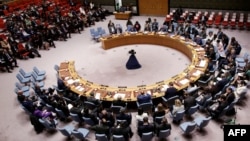When the United Nations was established in 1945, much of the world lay in ruins. In the wake of post-World War II devastation, the new global institution was meant to maintain international peace and security, and to achieve cooperation among nations on economic, social, and humanitarian problems.
Much has changed since 1945. For example, the UN’s premiere body for maintaining peace and security, the Security Council, reflected post-war power structures: four of the permanent seats were, and still are, held by Western powers, with China holding the fifth seat. Today, the 54 African countries account for 28 percent of the membership of the United Nations, yet they have no permanent representative in the Security Council.
To address these and similar issues, in September, the United Nations General Assembly held a Summit of the Future and approved a roadmap for the next generation of international cooperation: the Pact of the Future.
“To fulfill the crucial purpose of the United Nations, we urgently need support, reform, and revitalization,” said Secretary of State Antony Blinken.
“That’s why we joined fellow member states in shaping and committing to a broad range of priorities in the Pact for the Future.”
This includes “reforming the UN Security Council to better represent the developing world and, more broadly, the world as it is today,” he said.
“The United States believes that this should include two permanent seats for Africa, one rotating seat for Small Island Developing States, permanent representation for Latin America and the Caribbean, in addition to the permanent seats for countries we’ve long endorsed: Germany, Japan, India.”
“The United States is committed to adapting the UN system to reflect this world of today and tomorrow, not the one that existed in 1945,” said Secretary Blinken. “But we are, and we will remain resolutely opposed to revisionism.”
“We will not accept efforts to tear down, dilute, or fundamentally alter the core principles of the UN Charter – sovereignty, territorial integrity, independence,” he said. “We will push back fiercely against attempts to undermine the Universal Declaration of Human Rights and related international human rights treaties.”
“The Pact for the Future does not include every priority, every reform that we believe the UN needs,” said Secretary Blinken, “but it is a significant step toward strengthening and evolving this institution that every member-state should get behind and work to achieve.”






